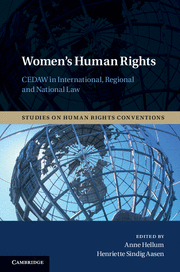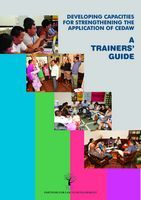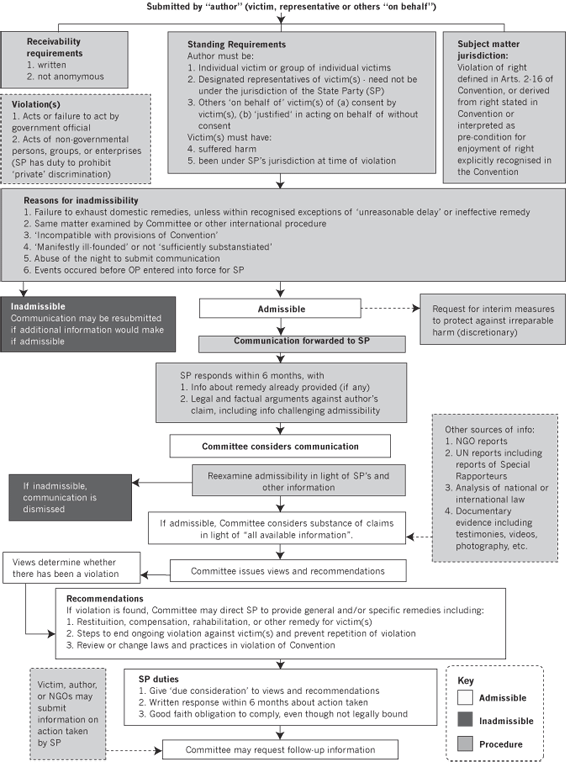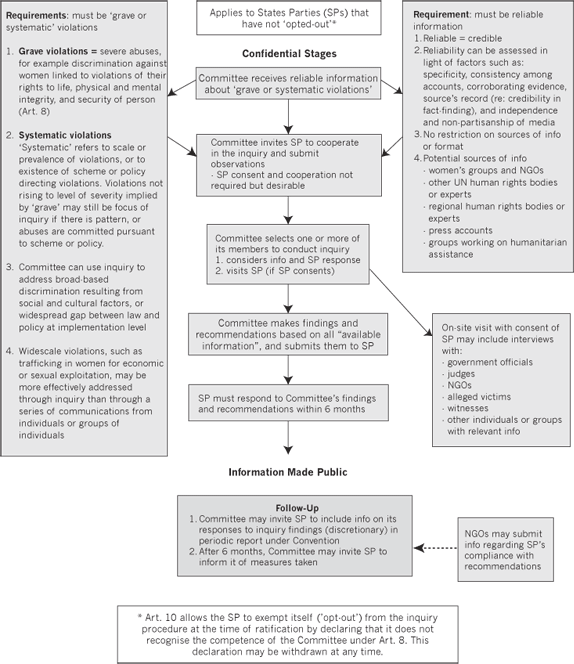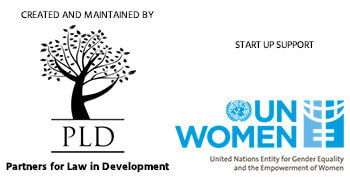This section explains the Optional Protocol to CEDAW and the two mechanisms, the Communications and Inquiry procedures.
The Optional Protocol (OP-CEDAW)
The Optional Protocol is an additional human rights treaty that complements CEDAW. It creates new compliance mechanisms through which individual cases of women’s rights violations by the state can be taken up, or an inquiry into grave and systemic violations can be instituted by the Committee. These provisions are available for the state parties that have ratified CEDAW and the OP-CEDAW can employ these provisions.
The OP-CEDAW allows the state party and its civil society to avail of the CEDAW Committee’s involvement beyond the periodic country review, thus enhancing compliance with CEDAW. It involves the Committee in the investigation of individual complaints and grave violations, thus enabling it to give its views and recommendations on addressing systemic and structural conditions underlying such violations. This allows the Committee to highlight the need for more effective remedies at the national level.
Text of the Optional Protocol
OP-CEDAW Fact Sheet


